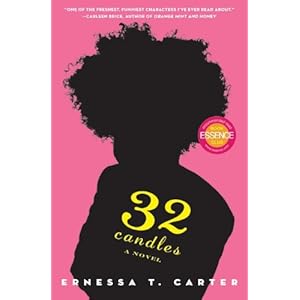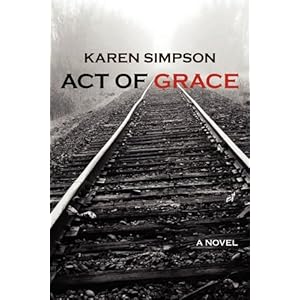Our first "White Readers Meet" Q&A of 2012 is with
Jacqueline Luckett, author of Searching for Tina Turner. She's here to tell us about her new book Passing Love, which getting lots of other good buzz! The glowing Publisher's Weekly
review called it "a dreamy and lyrical paean to all things French..."
Contest!
Passing Love hits stores (and e-readers) January 25th. But Jackie is offering WRMBA readers an incentive to pre-order. She's going to send a lovely journal to the first 10 people who
pre-order and
email proof of receipt to info AT jacquelineluckett DOT com!
Passing Love is a story about a woman who has had a lifelong dream to go to Paris. She goes and discovers more than she imagine. Win one of the free journals and use it to reflect on your own life and dreams.
On to the Q&A with Jackie:
White Readers Meet Black Authors: Tell us about your new book. What's the plot? Who are the characters?
Jacqueline Luckett: The new novel is titled PASSING LOVE. It’s quite different from Searching for Tina Turner, and I hope that readers will enjoy. The story alternates between two very different women. Publisher’s Weekly wrote a lovely review. The novel will be a
Good Housekeeping February Book Pick.
Moving back and forth in time between the sparkling Paris of today and the jazz-fueled city filled with expatriates in the 1950s, PASSING LOVE is the story of two women dealing with lost love, secrets, and betrayal and how the City of Light may hold all of the answers.

In the present day, Nichole-Marie Handy has loved all things French since she was a child. After the death of her best friend, determined to get out of her rut, she goes to Paris, leaving behind a marriage proposal. Ruby Mae Garrett lives in rural Mississippi in the late 1940s. Ruby believes that she is destined for a big life, and she’s determined to make sure that happens.
"Without fail, each woman had (or was forced) to decide what came next. The only way to figure that out is to take a journey to self. We have to re-discover ourselves, make choices about what comes next, re-invent who we are, and move forward. A hero’s journey is the crux of a good story. I like to show that an emotional journey is just as interesting as a physical one."
WRMBA: Why France? You wrote about it some in Searching for Tina Turner, and now more in Passing Love. Were you French in a past life?
JL: Good question. I’m not sure where the fascination comes from. It’s been a part of me my whole life. My father was in the Army and spent some time in France. The only thing I recall him telling me about his time in France was that the French treated the black American soldiers better than their own countrymen. Both my sister and I have French names, so I figure that something rubbed off on him.
It wasn’t my intention to write about France in Searching for Tina Turner, but once I discovered that she makes her home in the South of France, my character had to go there.
My original idea for PASSING LOVE was to write about an American woman who wanted to make a change in her life and live abroad. Since I was so familiar with France and had spent time in Paris—I decided to write about what I knew. That’s what all the books tell us to do. So, Paris was my logical choice for an ex-pat.
The story changed, as your readers will find out, but it all takes place in Paris.
I once asked a psychic why she thought I was so fascinated with France. She told me that in a past life I was French royalty. Hmmm. I didn't take much stock in her reading, though it does make sense if you believe that we have past lives. Her theory was that I had unfinished business. You could say that I’m taking care of that business in this life.
I studied French in high school, a couple of years in college and now I take weekly lessons. I can understand and make myself understand when I’m in France. I’ve traveled to France several times, and I feel comfortable there. It’s weird, but I learned long ago to roll with it. And look what it’s done for me!
WRMBA: You seem to write a lot about women finding themselves. Why do you think that is?
JL: I want my characters to mirror real life, and “finding” is what all of us will have to do at some point in our lives.
When I first started writing Searching for Tina Turner, I was lost. I mean that in the emotional sense, of course. I still had a home, friends, and my mother lives in a nearby city. I’d just gotten divorced. After all the “dust” settled, I was determined to make a new life for myself.
It took a while to figure out my direction and it occurred to me that other women were probably on the same emotional roller coaster. I spoke to quite a few women who were divorced or in the middle of one. Most were baby boomers with “empty nests.” They all described this feeling of being lost. Disconnected might be a better word. Some of those feelings came from no longer being grounded by children; some from having to start all over again in midlife. I’ve only known of one woman who supposedly planned out her departure from her marriage, but I’m sure she still had to take this same journey to self.
In most cases, divorce, and the lifestyle change, was unexpected. Without fail, each woman had (or was forced) to decide what came next. The only way to figure that out is to take a journey to self. We have to re-discover ourselves, make choices about what comes next, re-invent who we are, and move forward. A hero’s journey is the crux of a good story. I like to show that an emotional journey is just as interesting as a physical one.
WRMBA: You know a bit about wines, I believe. What type of wine(s) would you recommend to readers to enjoy as they read Passing Love?
JL: This is my all time favorite question!
I enjoy wine and recently took a Wine Tasting class to refresh my skills and expand my interest in European wines. Besides champagne (only the French can use this appellation) and sparkling wines (describes the bubbly from any other country), California wines remain my favorite. Frankly, I’m torn. For white wines, I love robust, creamy Chardonnays with a lot of oak. Full-bodied, fruity cabernets, merlots, and zinfandels are my favorite reds, in that order.
At the beginning of PASSING LOVE, Nicole pulls out a bottle of 100-year-old tequila to celebrate her trip. In Paris, she’s introduced to red wine. Ruby doesn’t drink; she’s in love with strong French coffee with lots of milk.
I suggest a combo. A nice shot of your favorite tequila—and a good one is smooth and worth sipping. Since the first two chapters introduce Ruby and Nicole, tequila works well. Then I’d switch to a nice Chardonnay for the rest of the book. Switch to a cabernet when Nicole does.
Finish with a glass of your favorite bubbly—that’s what I intend to do!
WRMBA: What's next for you?
JL: I’ve got several ideas brewing that I want to turn into reality. Novel number three, for sure. (This book will not even have the word Paris in it, but my fingers are crossed behind my back.) I sketched a lot of scenes in a frenzied month-long NaNoWriMo (National Novel Writing Month) writing spree.
A few readers have asked about a sequel to Searching for Tina Turner, but unless there’s a lot of demand, I don’t expect to write one (never say never, right?). I’d like to see the novel turned into a movie or a Broadway musical. I’m keeping my fingers crossed for either one of those dreams to come true.
This past summer, I took a class at Berkeley Repertory Theater and wrote a one-act play. At the end of the class, we staged public readings in front of a small group of my friends. It was exciting to hear my words read out loud. I’m going to look for theaters and try to get the play produced.
I have an idea for a screenplay that I’ll probably outline in 2012.
So, I have a lot of ideas. What’s next? Implementation. And maybe, Paris.
WRMBA: What's the best book (or who’s the best writer) that not enough people know about?
JL: Best is hard to say, because I’ve read so many beautiful books by authors well- and little-known.
Dianne McKinney-Whetstone is a writer I love. Though she’s received a lot of awards, few people I speak to seem to know her work. I’ve read four of her five novels and loved them all. She lives in Philadelphia and her novels take place there.
McKinney-Whetstone inspired me. Before I started writing, I read an article of how she worked full-time and managed her family, then wrote in the wee hours at her kitchen table. I’m not sure if the story is true, but as a working mother, it gave me hope.
She may be better known than I think, but I haven't seen anything new from her in a while. I checked her website and I see she teaches at the University of Pennsylvania. I don’t see a new novel listed. I wonder if she’s writing.
If I could mention another author, it would be
Emily Raboteau (The Professor’s Daughter).
Thanks, Carleen for this opportunity.
WRMBA: You're very welcome! Thank you for telling my readers a little about you and your work!














